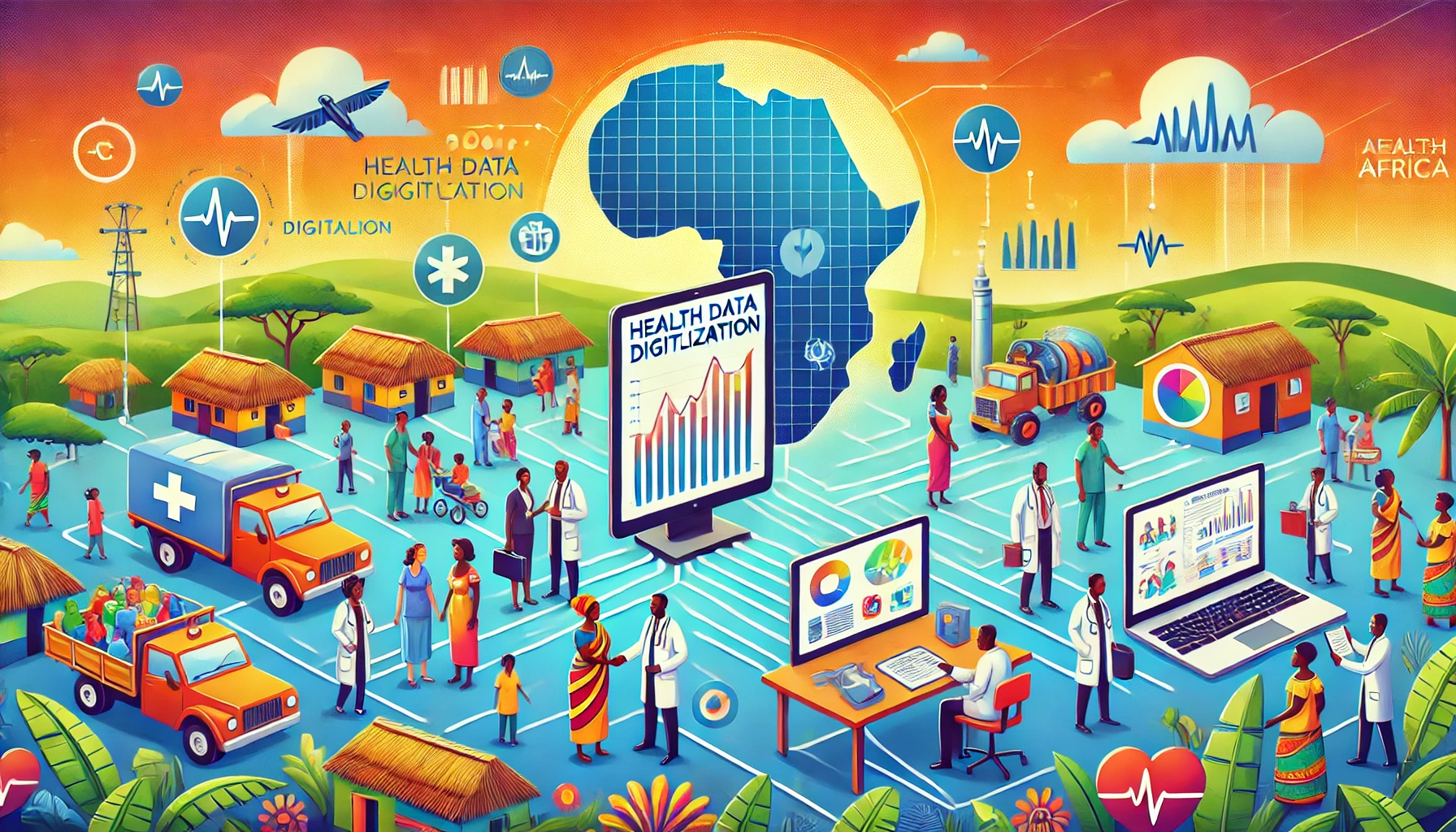Revolutionizing African Healthcare Systems Through Digital Health Data Innovation
The report highlights the transformative potential of health data digitalization in Africa, emphasizing improved efficiency, decision-making, and equity in healthcare despite challenges like fragmented systems, limited infrastructure, and workforce gaps. It calls for multi-sectoral collaboration, robust governance, and investments to unlock the benefits of digital health for the continent.

Research by Bataliack Serge, Ebongue Mbondji, Karamagi Humphrey, and Leon Janauschek under the WHO Regional Office for Africa, examines the transformative potential of health data digitalization (HDD) in Africa. Supported by the African Health Observatory Platform on Health Systems and Policies (AHOP), with collaborating institutes like Addis Ababa University, KEMRI Wellcome Trust, and the University of Nigeria, the report highlights the uneven implementation of digital health solutions across the continent. While pilot projects such as electronic health records (EHRs) and mobile health (mHealth) applications have shown promise, their integration into national frameworks and scalability remain limited. The fragmented focus on diseases like malaria, HIV/AIDS, and tuberculosis underscores the lack of holistic strategies for utilizing digital technologies in healthcare.
Challenges in Infrastructure and Implementation
Africa’s digital health systems remain constrained by infrastructure deficiencies, regulatory gaps, and limited workforce capacity. Many primary health facilities continue to rely on paper-based systems, with only partial implementation of platforms like the District Health Information Software 2 (DHIS2). This reliance compromises data quality and delays decision-making due to errors and inefficiencies in manual aggregation. Furthermore, the absence of a standardized national digital health architecture hampers seamless data exchange. Rural areas face additional challenges with unreliable internet connectivity and limited access to electricity, creating a stark digital divide that affects healthcare delivery. In Nigeria, for instance, fewer than 50% of primary health facilities have internet access, further widening inequities in digital health adoption.
The Transformative Potential of Digital Health
Despite these challenges, the report underscores the potential of HDD to revolutionize healthcare systems. Real-time data collection and analysis enable evidence-based policymaking, improved patient outcomes, and enhanced efficiency in healthcare services. The COVID-19 pandemic illustrated the critical role of digital tools in disease surveillance, contact tracing, and remote healthcare delivery. However, it also exposed significant weaknesses in the existing digital infrastructure, particularly in underserved regions. Addressing these gaps could pave the way for more resilient health systems capable of responding to future crises.
Countries like Kenya and Senegal are making strides in addressing regulatory and interoperability issues. Kenya’s Digital Health Act consolidates fragmented regulations and promotes compatibility with platforms like DHIS2. Senegal, meanwhile, is working on a framework to standardize health information systems, though practical implementation remains a challenge. These efforts highlight the importance of robust governance and policy frameworks in unlocking the full potential of digital health.
Empowering the Workforce for Digital Transformation
Workforce capacity is a critical enabler for successful HDD. The lack of digital literacy among healthcare workers and the shortage of skilled personnel are major barriers. Many healthcare professionals are not trained to use digital tools effectively, and investments in training programs have yet to yield widespread adoption. For instance, Nigeria faces a significant shortage of health records officers and statisticians, with investments in digital training showing limited results. The report calls for integrating digital skills into health sector human resource plans and launching targeted capacity-building initiatives to empower healthcare professionals.
Africa’s young, tech-savvy population offers an opportunity to drive digital health adoption. Mobile phone penetration has grown significantly, enabling the use of mHealth applications to deliver healthcare services in remote areas. These technologies, combined with focused workforce development, can bridge gaps in healthcare access and improve service delivery. However, sustained investment in ICT infrastructure, particularly in rural areas, is crucial to realizing this potential.
The Road Ahead: Collaboration and Innovation
To advance HDD, the report emphasizes the need for multi-sectoral collaboration. Governments, private sector partners, and international organizations must work together to create an enabling environment for digital health. Public-private partnerships (PPPs) can bridge funding and technological gaps, leveraging resources and expertise to accelerate the adoption of digital tools. By fostering a culture of innovation and ensuring equitable access to digital technologies, Africa can address existing disparities and unlock the full potential of HDD.
Projections suggest that digitalization could save African health systems up to 15% in costs by 2030, enabling funds to be redirected toward improving access and outcomes. Successful pilot projects, when scaled up, provide valuable lessons for broader implementation. The COVID-19 pandemic has already spurred progress in digital health, demonstrating the value of HDD in managing health crises and ensuring continuity of care.
Unlocking Africa’s Digital Health Future
While challenges persist, the opportunities for HDD in Africa are immense. A coordinated approach addressing infrastructure, governance, and capacity-building can help unlock the transformative power of digital health. HDD is not merely a technological innovation; it is a cornerstone for achieving universal health coverage and advancing Sustainable Development Goals. With strategic investments and partnerships, Africa is well-positioned to lead a digital health revolution that transforms healthcare delivery and improves the lives of millions. By leveraging its young population, investing in infrastructure, and fostering collaboration, the continent can chart a path toward more efficient, inclusive, and resilient health systems.
- FIRST PUBLISHED IN:
- Devdiscourse










